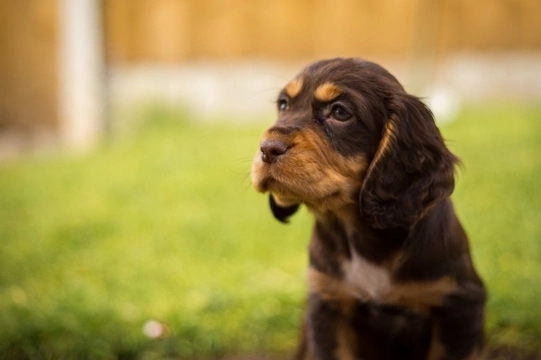
Five tips to keep cocker spaniels safe in summer
The cocker spaniel is a very lively and outgoing dog breed, and one that is a perfect match for active families that like to spend a lot of time outdoors. They’re also very versatile dogs that are intelligent and adaptable, and which can live happily in all sorts of different environments and homes.
The breed as a whole is one that tends to be cheerful and friendly if somewhat highly strung and sometimes prone to separation anxiety, and they need a significant amount of exercise to keep them happy and on an even keel!
Summer is a great time to own a cocker spaniel as the longer days and lighter nights mean many more opportunities to go out and do things with your dog; but there are also special care considerations in the summer that dog owners need to be aware of too, in order to ensure that their dog stays safe.
Some of these are universal and apply to all dog breeds equally, but there are also individual challenges faced by various different breeds, making some breeds more likely to run into certain types of problems than others!
With this in mind, this article will share five tips to keep cocker spaniels safe in the summer, and cover some of the care considerations you will need to think about in the warmer months to avoid any problems. Read on to learn more.
Cockers love to swim, and this isn’t always a good thing!
As a retrieving dog breed, cocker spaniels usually have a particular affinity for the water and they generally love to swim. Some dogs will be keen to paddle or swim in lakes and streams if permitted, but you should take care about where and how you permit this; and take special care if your dog is apt to dive in without thinking first, whether you want them to or not.
Even on warm days, water in pools can be surprisingly cold and cause difficulties for dogs that jump in. Additionally, your dog may be able to get in without a problem, but can they also get out? It is important to bear all of this in mind and also not to let your dog swim in a water source you don’t know is safe, until you’ve spoken to other local dog owners to check and heeded any signs and local warnings.
Also, blue-green algae blooms, pollutants, and other hazards in open water can also pose a serious threat to swimming dogs, so once more, learn about specific seasonal threats, warnings in your local area, and advice specific to any stream, lake or pool you have in mind.
Grass seeds and burrs
Cocker spaniels love running though bushes and undergrowth, and in spring and summer they’re apt to come back out the other side with a coat full of burrs, thistles and other seeds and particles, particularly in the fur of their ears, chest and leg feathering.
Removing these can be inconvenient and very time-consuming, but it needs to be done to avoid matting of the fur. There is another summer cocker spaniel problem that can arise here too that can be rather more problematic, which occurs when a grass seed works its way under the skin where your dog’s claw meets the sheath, or if a burr enters their inner ear.
Reduce the risk of these problems by grooming your dog to remove debris after walks, and pay attention if your dog is bothering one of their paws a lot or is shaking their head and pawing at their ear excessively.
Heatstroke
Cocker spaniels have a well-balanced conformation with a long muzzle that makes them fit for life, but they can still overheat in the summer. As a very energetic dog breed, they don’t always know when to take a break, or may keep running around even when they get too hot because they’re having too much fun.
Reduce the risks by walking your dog at the cooler times of the day and giving them plenty of rest breaks, as well as making water freely available to them at all times.
Picking up problems
Once more, one of the main traits of retrieving dog breeds is that they like to carry things in their mouths and some cockers aren’t happy if they don’t have a ball or a toy.
This means that if you forget this or they lose it on their walk, they might be keen to pick up anything they find, even if this is unsuitable – like sticks.
Also, toys left out in the garden overnight or found in undergrowth in the park might have been crawled over by slugs and snails, which can place your dog at risk of lungworm, so be careful about your dog’s toys and where they’ve been, and also ask your vet about lungworm preventatives too.
Impacts and injuries
Cockers are very active dogs that love to run around and particularly, play catch with a ball or Frisbee, which often involves a lot of fast running and leaping about. This is high-impact activity, which is perfectly fine for healthy dogs with sound joints and bones, but does heighten the risk of strains and injuries.
In the summer when the ground tends to be harder and drier, the risk of injury from high-impact exercise increase, so bear this in mind and limit your dog’s exertion and be cautious about the type of surfaces they’re running around on.



